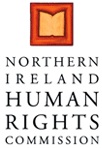
More than 10 years after a bill of rights was first agreed in the Good Friday Agreement, the North’s Human Rights Commission has presented its recommendations on the bill to the British government.
The proposals are the culmination of a long and often fraught process, and face still greater obstacles in the form of intransigent unionist opposition.
The Bill of Rights Forum, finally set up following the St Andrews Agreement in 2006 to consult on what the bill should contain, published its report in March.
The commission then drew up a final report on the bill, which it presented to the British Dirct Ruler Shaun Woodward this week,
The report includes a huge number of recommendations, covering the right to equality, access to education, the protection of identity, health, justice and an adequate standard of living.
Among the key recommendations not covered by existing legislation are:
- Every murder carried out during the conflict should be “effectively investigated”
- People in the Six Counties should have the right to be accepted as Irish or British or both
- Public authorities must make sure the Irish language and Ulster-Scots are protected and promoted
- Public bodies should take “special temporary measures” to encourage more women to take part in political or public life
- Everyone has the right to an adequate standard of living “sufficient for that person and their dependents”
- All workers should have the right to strike
- Criminals under the age of 18 should not go to prison, except as a “last resort”
Many of the other rights proposed, such as the freedom from unfair discrimination, are already protected in law.
Two of the 10 Human Rights Commissioners formally dissented, without giving reason, when the report was handed over on Wednesday, the 60th anniversary of the signing of the UN Declaration of Human Rights.
The dissenters, both unionists, were Daphne Trimble, wife of former UUP leader David Trimble, and DUP councillor Jonathan Bell.
Derry Sinn Féin Assembly member, Martina Anderson, welcomed the next stage of the Bill of Rights process “as another key step in realising one of the outstanding commitments in the Good Friday Agreement”. But she said it was “disappointing and unfortunate” that two of the 10 Human Rights Commissioners formally dissented.
“To those members of the DUP and UUP who continue to oppose a Bill of Rights, I would ask them to explain to their electorate, why they reject key rights for the people that they represent.”
“For instance, the DUP and UUP opposed the right to a decent standard of living, including adequate food, water, fuel and clothing.”
“Both parties also rejected the right to the highest possible standard of health and social care.”
“They opposed the right to a decent home that is safe and affordable.”
“They also oppose the inclusion in a Bill of Rights, the right to work and to enjoy a fair wage and proper conditions.”
“They have rejected the right to a sustainable, healthy and safe environment or the right to adequate social security and pension.”
“However, I hope that, particularly in the current economic climate, they will now begin to realize that a strong Bill of Rights would provide a powerful tool to make a huge difference to the lives of all our people.”
“If implemented, a Bill of Rights would compel government to take whatever possible steps it can in order to address the economic and social problems which face our people.”
“This isn’t about Republican rights, nationalist rights, unionist or loyalist rights - it is about rights for ALL.”
* The chief executive of the Equality Authority in the 26 Counties has resigned following budget cutbacks by the Dublin government.
Niall Crowley quit after saying the organisation, which works to combat unfair discrimination in the South, had been made unviable by the 43% budget cut and the government’s insistence on the decentralisation of most of its remaining staff.
In his resignation letter, Mr Crowley accused the government of victimising the Equality Authority for “doing well what it was established to do”.
![[Irish Republican News]](https://republican-news.org/graphics/title_gifs/rn.gif)
![[Irish Republican News]](https://republican-news.org/graphics/title_gifs/harp.gif)

